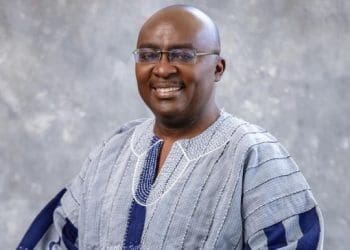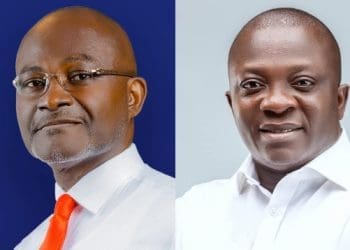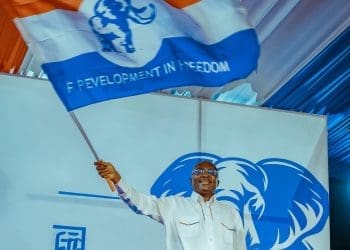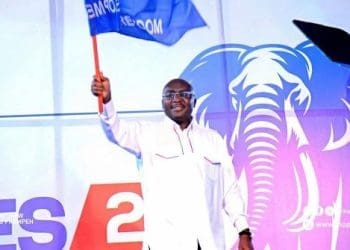The Executive Director of the Institute of Economic Research and Public Policy (IERPP), Professor Isaac Boadi, has strongly condemned the violent attacks that marred the recently held elections in the Ablekuma North Constituency, cautioning that such incidents risk severely damaging Ghana’s international democratic reputation.
In a strongly worded statement shared with selected media houses, the respected academic and policy analyst said the chaos and targeted assaults witnessed in as many as 19 polling stations cast serious doubt on Ghana’s democratic maturity, especially in the eyes of the global community.
Unprovoked violence against politicians and journalists
Professor Boadi cited what he described as unjustified attacks on leading members of the opposition New Patriotic Party (NPP), including former Minister for Special Development Initiatives, Hawa Koomson, and other NPP figures such as Chris Nana Lloyd.
“We all witnessed how some thugs descended on Hawa Koomson, Chris Nana Lloyd and a few NPP party members for no justifiable reasons,” he said.
“We also saw unprovoked attacks on some media persons at some of the polling stations. These must be condemned in no uncertain terms.”
The violence, which erupted during a limited parliamentary rerun in the constituency, has attracted national and international concern.
Videos circulating online captured chaotic scenes involving attacks on political agents and journalists, raising fears about voter intimidation and press freedom violations.
Warning to govt: Take preventive action
Professor Boadi, who is also Dean of the Faculty of Accounting and Finance at the University of Professional Studies, Accra (UPSA), urged the government, led by President John Dramani Mahama, to urgently intervene to prevent a recurrence of such scenes in future elections.
“Such acts dent Ghana’s image internationally. In this day and age, why should elections held in just 19 polling stations bring about such violence against political opponents?” he queried. “The Mahama government must take pragmatic steps to prevent these from reoccurring.”
He warned that if similar violence erupts during the upcoming Akwatia by-election, Ghana’s image as a peaceful and democratic state could suffer irreparable damage.
Akwatia by-election Looms: ‘Don’t Let This Happen Again’
With political tensions rising ahead of the Akwatia by-election, Professor Boadi cautioned all stakeholders—particularly the ruling government—not to allow history to repeat itself.
“Ghana’s international image will sink further if measures are not adopted to ensure a violence-free election in Akwatia,” he warned.
“The country cannot afford to experience such a reprehensible situation in the by-election yet to be held in Akwatia. It’d be an embarrassment for the government and the country if we are unable to maintain peace and order there.”
The Akwatia contest is expected to be fiercely contested between the National Democratic Congress (NDC) and the NPP, with both parties viewing it as a strategic seat ahead of the 2026 general elections.
A threat to Ghana’s reputation as a democratic beacon
Ghana has long been regarded as a model of peace and democracy in the West African subregion.
But Professor Boadi said incidents like those at Ablekuma North threaten to undo the progress the country has made over the past three decades.
“Ghana, over the years, has been seen as a beacon of peace, stability and democracy. What has happened at Ablekuma North has the potential to erode this enviable reputation of the country,” he said.
He concluded with a passionate call for national unity and political maturity, stating, “Let us all, in unison, condemn the attacks and violence in Ablekuma North and pledge to do better going forward.”
The events in Ablekuma North are the latest in a worrying trend of politically motivated violence that continues to mar Ghana’s elections, despite repeated commitments by both major parties to uphold peace.
With the Akwatia by-election on the horizon, the pressure is now on the government, security agencies, and the Electoral Commission to restore public trust by ensuring a peaceful, transparent, and credible electoral process.













